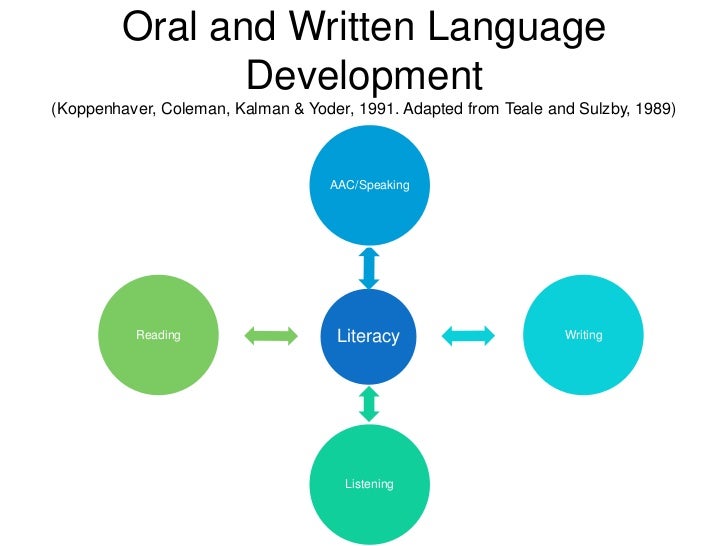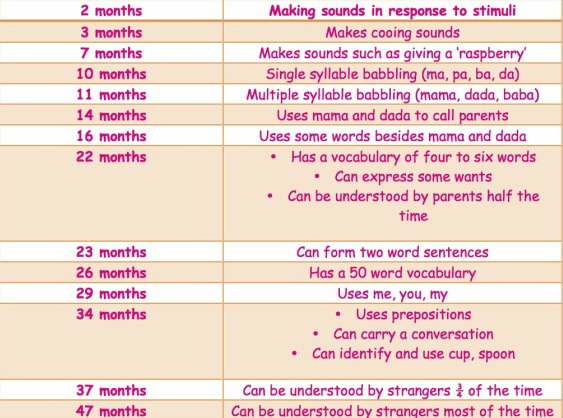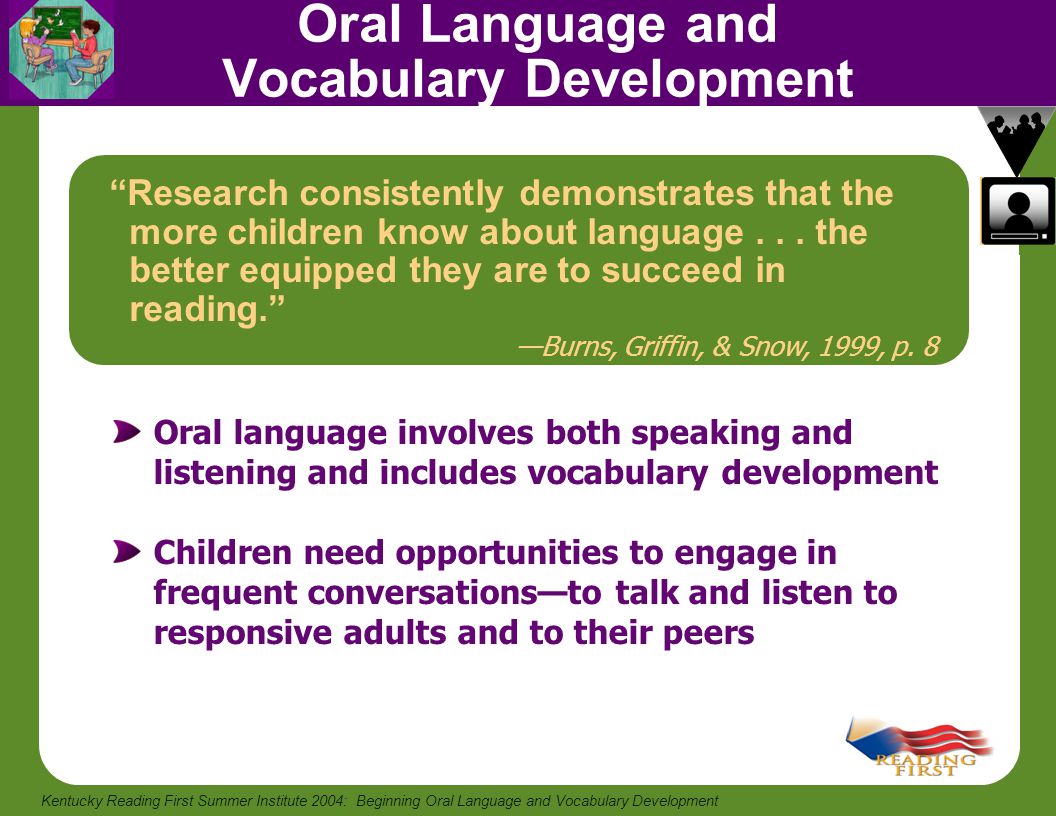Development Of Oral Language
Variations on Reader’s Theater for English Language Learners Student Scripts. Rather than using prepared scripts, students can write a script on a topic of their choosing, or they can summarize a book by using the Language Experience Approach to re-tell the main parts of the story.
In this article written for Colorín Colorado, Dr. Lindsey Moses Guccione shares five key challenges related to the oral language development of ELLs, as well as tips for addressing each of the challenges. Dr. Moses Guccione is the co-author of Comprehension and English Language Learners: 25 Oral
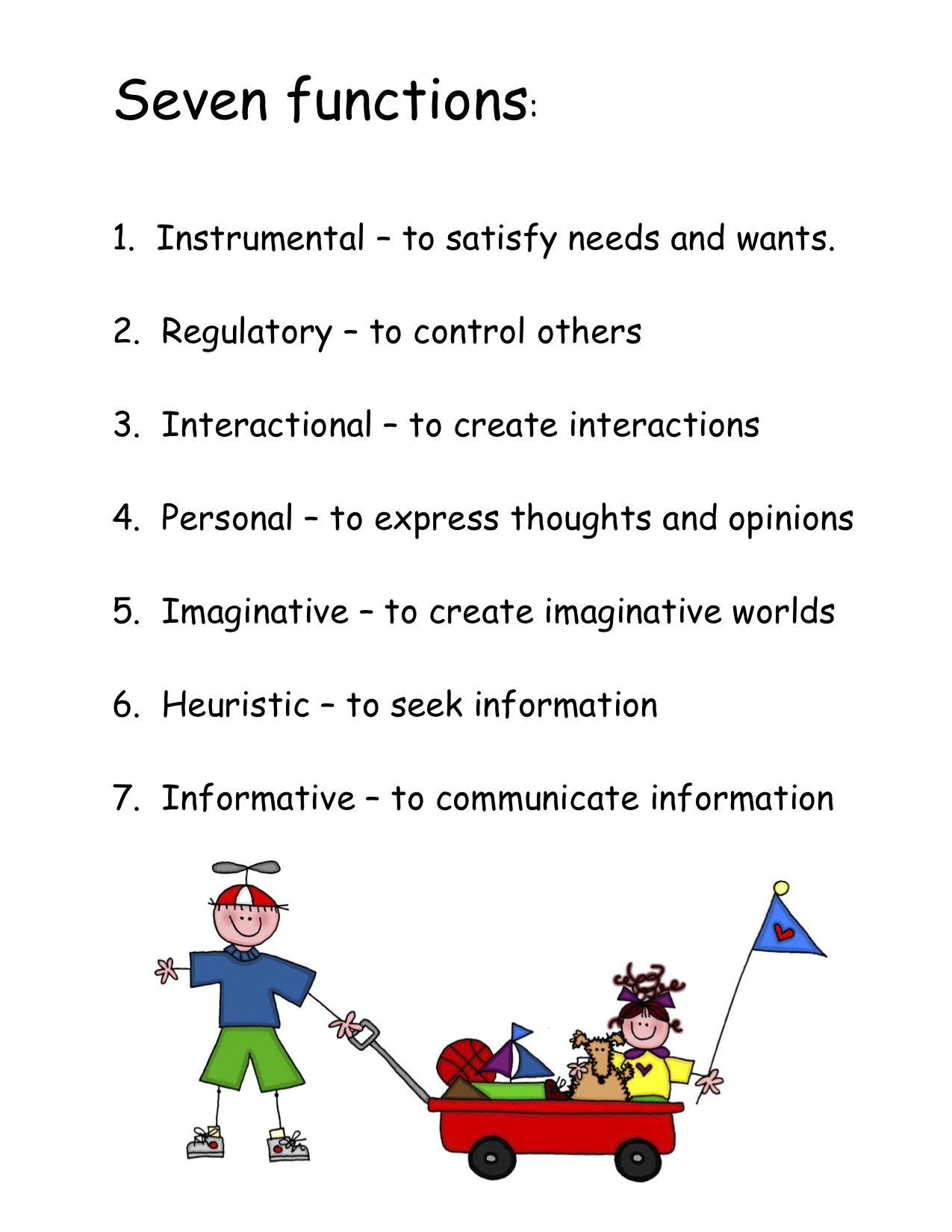
Unit of competency details CHCEDS005 – Support the development of literacy and oral language skills (Release 2)
ELLs can benefit from Reader’s Theater activities in a number of ways, including fluency practice, comprehension, engaging in a story, and focusing on …
language development charts and expert information to help parents like you know what to expect from your ‘s language development.
Language is a cognitive process by which we communicate our thoughts and feelings to others. When we think of language and college, most of us think about reading. But language skills encompass more than reading.
The development of oral language is one of the ‘s most natural – and impressive – accomplishments.
Infancy Language development begins before birth. Towards the end of pregnancy, a fetus begins to hear sounds and speech coming from outside the mother’s body.
Language development is a process starting early in human life. Infants start without knowing a language, yet by 10 months, babies can distinguish speech sounds and engage in babbling.
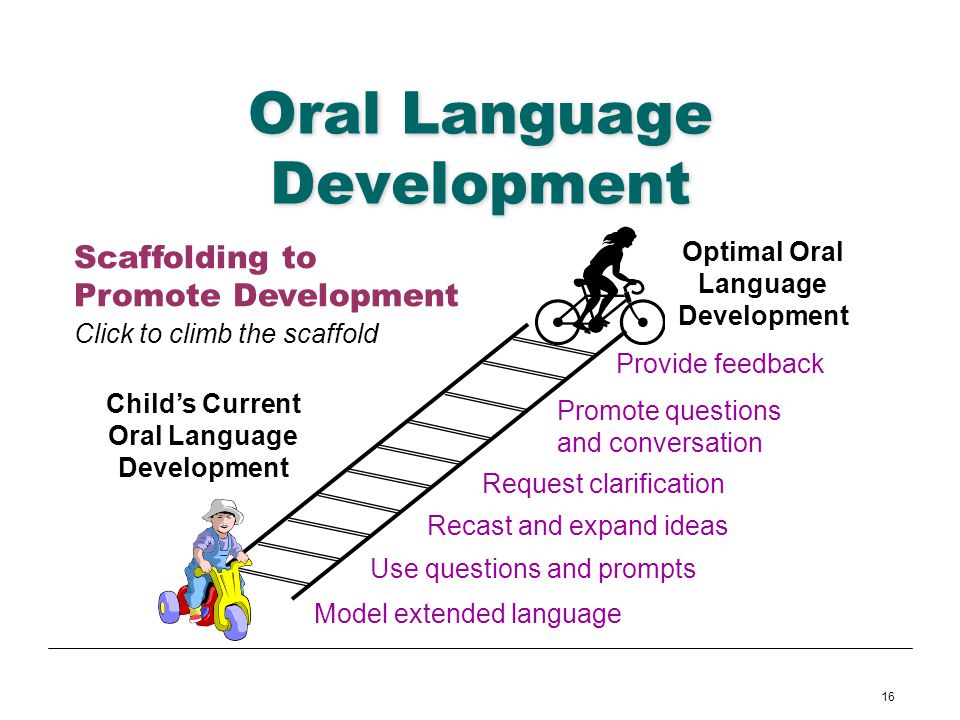
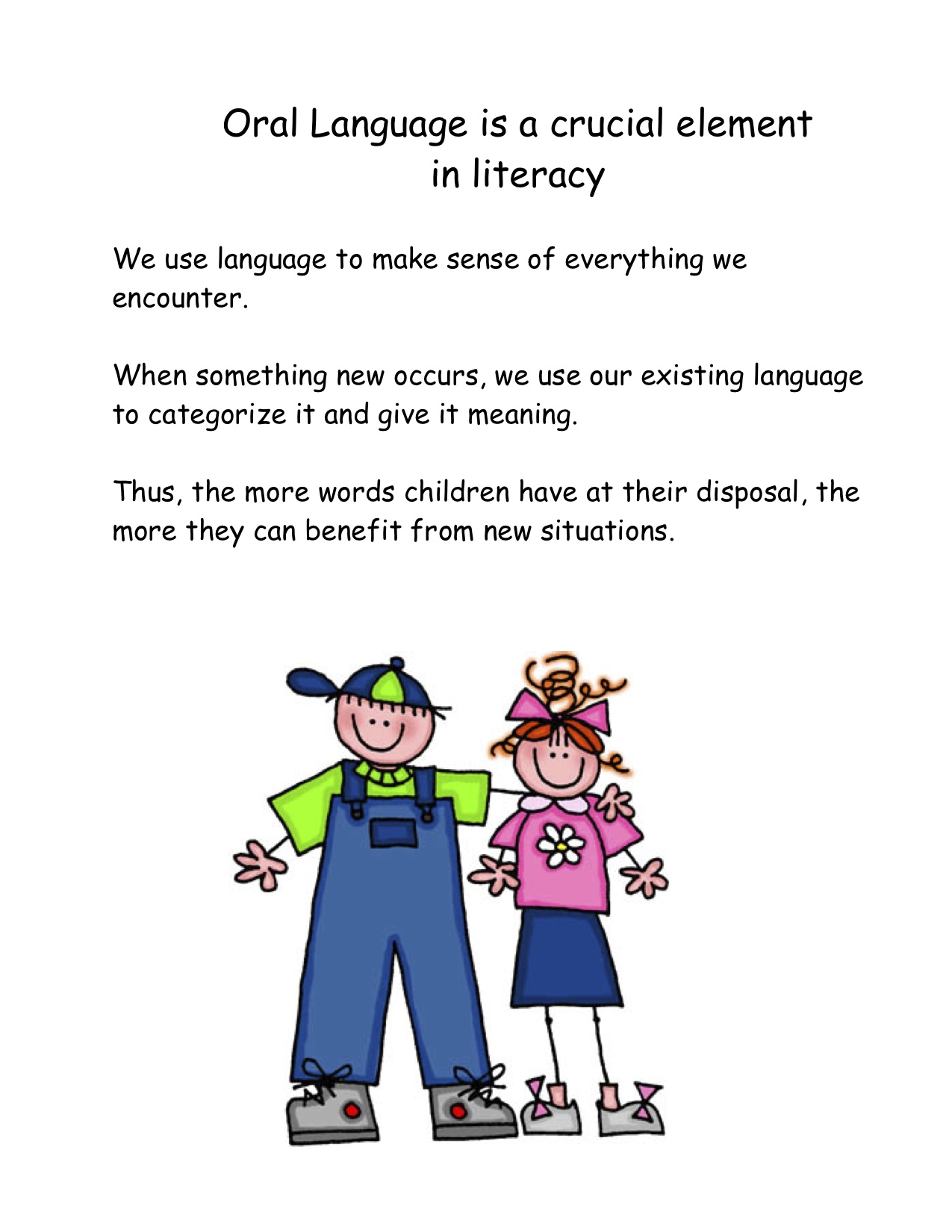

The Foundation pack is designed to provide ren with a positive start to literacy. Programs include those that focus on pre-literacy, early literacy, oral language (i.e. grammar, vocabulary, semantics, comprehension etc.) and movement and motor skills.
